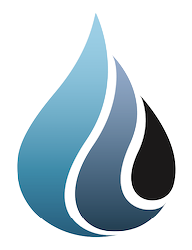Worse than a boil advisory
Mr Montpetit sympathises with the people of Prince Albert who have to put up with a drinking water advisory, just like the citizens of Longueuil in 2015. He wonders if our addiction to petroleum should not be reviewed in the light of these accidents.Worse than a boil advisory!
Even if Husky Oil pays for some damages, what about the financial losses of farmers and local businesses? What about the anxiety that every citizens faces as he or she tries to cope with the situation on an hour by hour basis? And what about a sound, and beautiful environment? No insurance money can totally pay for such losses!
In Quebec, we have sympathy for the plight of the people of Prince Albert. On January 15, 2015, a tank containing diesel fuel contaminated the water purification plant of the south shore city of Longueuil; this left 300 000 people without access to water for three days.ivAccidents, like these, should be a lesson for the citizens of Canada; no pipeline is totally safe. Presently, there are a number of pipelines projects that are awaiting approval by the NEB (National Energy Board). Amongst them, Energy East would see 1 100 000 barrels per day of dilbit travel over 4 600 km to the East Coast and cross more than 800 rivers, streams, ditches and marshlands.v If built, that pipeline would carry more than 2000 liters of heavy oil per second. At the BAPE (Quebec's equivalent of the NEB), TransCanada admitted that if its sensors worked right, and the people in its control center reacted correctly, it could stop the flow of oil in 13 minutes. That means that if everything goes right, "only" 1 560 000 liters of heavy oil would escape. In real life, 13 minutes between the detection of a leak and the complete stop is overly optimistic. In your case, Husky Oil needed 14 hours. And in 2010, Enbridge, in the Kalamazoo River (Michigan), required 17 hours.
One must remember that the crossing of the Ottawa River between Hawkesbury and Rigaud is technically difficult from an engineering point of view. A giant spill, upstream of Montreal, would leave 3.5 million in the same plight as people of Prince Albert and North Battleford.
Such unfortunate incidents can become a springboard to change our way of living that depends so heavily on fossil fuels. We should be thinking along the lines of the Conference of Paris; to keep climate change within acceptable ranges, mankind must move rapidly towards a low carbon economy. On the other hand, if we increase our dependence on oil, thereby producing more GHG (greenhouse gases), we will face increasingly bizarre and costly weather events such as hurricanes, heavy downpour, and droughts. Giant forest fires, caused by extreme dryness, are also costly.
When politicians, such as Premier Brad Wall, ask that Manitobans, Ontarians, Quebecers and New Brunwickers authorize Energy East, these promoters are demanding that we should be constantly at risk of such a giant spill.vi There are no risk-free oil technologies!vii The same argument applies to British Columbians, and First Nations who are opposed to the Northern Gateway and TransMountain pipelines towards the West Coast. Or, for that matter, to Enbridge's old line 9B towards Montreal! Each liter of oil will contaminate one million liters of water! Therefore, oil and water don't mix!
Gérard Montpetit
La Présentation, QC
July 28, 2016
i http://www.ledevoir.com/societe/actualites-en-societe/476310/maree-noire-prince-albert-tente-de-menager-ses-reserves-d-eau

